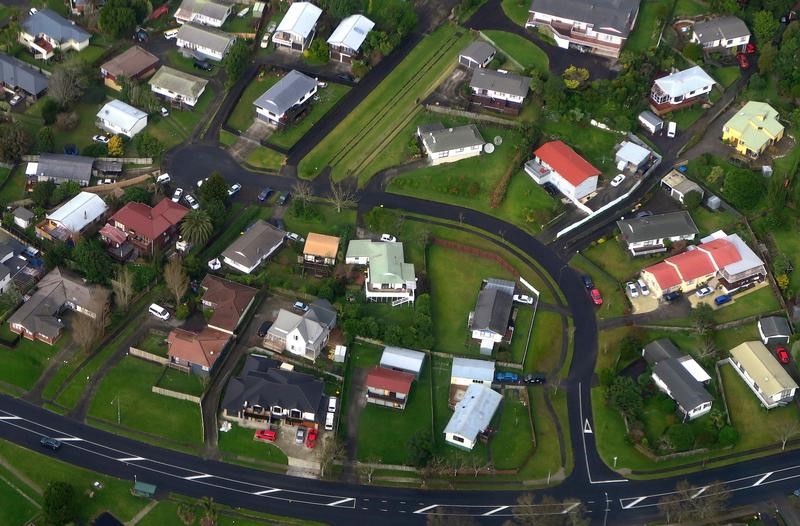By Charlotte Greenfield
WELLINGTON (Reuters) - Lending curbs cooled home values in New Zealand last month, and pulled prices down in its biggest city Auckland for the first time in six years as investors braced for a further downturn in the face of the new government's planned ban on foreign homeowners.
Prices in the Auckland region, previously the epicenter of rapid house price inflation, fell 0.6 percent for the first annual fall since 2011, data from government valuer QV showed on Thursday.
Nationwide, growth eased to its slowest pace in five years at 3.9 percent in the year ending October, down from 4.3 percent the previous month, suggesting central bank restrictions are starting to tighten the screws on a market that sizzled at a red-hot pace over recent years.
A further downturn in the sector is on the cards, economists say, as the newly-appointed Labour government this week said it planned to implement a ban on foreign owners of existing homes by early 2018. That would form part of a series of measures to fix what Labour describes as a housing crisis.
"I think a slower housing market next year is a sure bet and that will have a short-term impact on consumer spending and therefore growth," said Dominick Stephens, chief economist at Westpac Bank.
An immigration boom, robust economic growth and low housing stock fanned hefty home price gains of more than 56 percent in the past decade.
Labour has said that it is implementing the ban on foreign speculators as a matter of principle but that it does not expect the restrictions to significantly dent house prices.
However, the leftwing government also plans to impose more stringent tax rules on local property investment and curb migration, which would see less people entering the country in need of houses.
Economists said that political uncertainty during the lead up to the election and coalition negotiations throughout September and October likely contributed to easing prices in the past few months.
Still, even before the Labour government took power this month the market had begun to run out of steam.
"In general there appears to be a trend of slowing in the rate of growth with the frenzy induced by high numbers of investors in the market subsiding and a return to more normal levels of activity in housing market around the country," said QV spokeswoman Andrea Rush, in an emailed statement.
Figures released by the Real Estate Institute of New Zealand had also shown falls in Auckland in recent months and slowing growth throughout the year.
Though waning house values could drag on household confidence and economic growth it should bring some relief to the central bank which had been alarmed at the financial stability risk posed by the elevated market.

"To the extent that we've had quite a surge in house prices in recent years, some easing would be welcome by the Reserve Bank given the unaffordability of New Zealand housing," said Christina Leung, economist at think tank the New Zealand Institute of Economic Research.